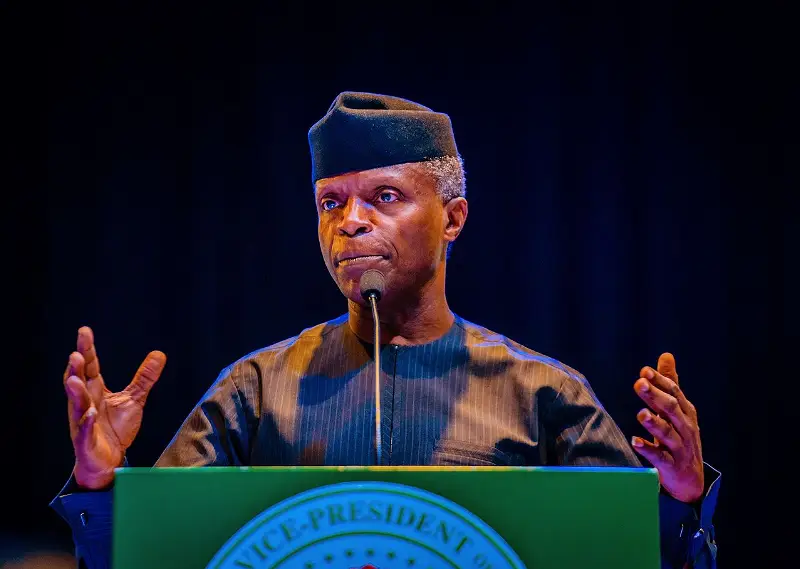
Vice President Yemi Osinbajo says a cashless policy, when effectively operated in Nigeria, can help stem the surge of illicit election financing by making it possible to track funds.
Osinbajo’s spokesman, Laolu Akande, in a statement on Monday in Abuja, said the vice president received a delegation of the EU Election Observation Mission led by Mr Barry Andrews.
The EU Chief Observer is also a member of the European Parliament.
“I think that what we should be looking at is to provide more infrastructures.
“ The cashless thing has been really advantageous and helps with tracking.
“That sort of infrastructure is useful for more financial inclusion and the more financial inclusion you have, the easier it is to track.
“So much money can be spent without it being tracked under the current election financing practices in the country.’’
Osinbajo acknowledged the serious difficulty in controlling election financing because of cash transactions.
According to him, there are still infrastructure issues required to be in place to ensure an efficient cashless system in the country.
“With cash transactions, it is still difficult to seriously control election financing.’’
On electoral offences, the vice president said the Electoral Offences Commission Bill was at the National Assembly.
He said he hoped that it would begin a new regime of dealing with electoral offences which would be helpful.
“By and large, one shouldn’t expect INEC to be the investigator of electoral offences.
“I think that law enforcement agencies should be responsible for arresting and prosecuting offenders, state by state.
“Electoral offences are always seen through a political prism; people will always feel that they are being prosecuted because they belong to a certain party.
“What is more important is that we have to find a system where the police could have a special unit for offences during the course of elections.
“The Federal High Courts could also have a special jurisdiction to deal with offences and not extend beyond the Federal High Courts.”
On the role of the judicial system, Osinbajo said that more attention should be paid to the monitoring of tribunals and their outcomes, calling for more scrutiny from the National Judicial Council.
He disclosed that discussions had been had in the past concerning malfeasance on the part of some judges and those found guilty should be brought to the fore.
“There should be sanctions and that way, we would be able to clean up and correct some of the problems,’’ he said.
In his remarks, Andrews said that the mission would be monitoring the elections coming up next month and hope for a peaceful and fair electoral process.
According to him, it is the 7th time the INEC is inviting the EU Mission to monitor the elections, adding that the team had been in the country since Jan 11 and will be around until the end of March, 2023.
Other members of the delegation include Ms Samuela Isopi, Ambassador, EU Delegation to Nigeria and ECOWAS and Mr Thomas Boserup, Deputy Chief Observer, EU Election Observation Mission.
Vanguard


